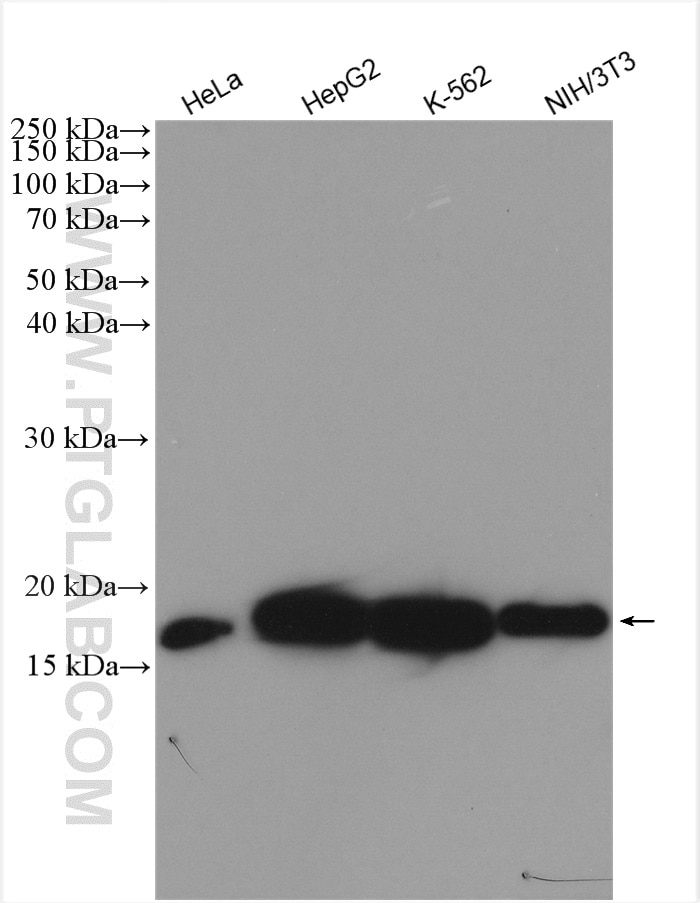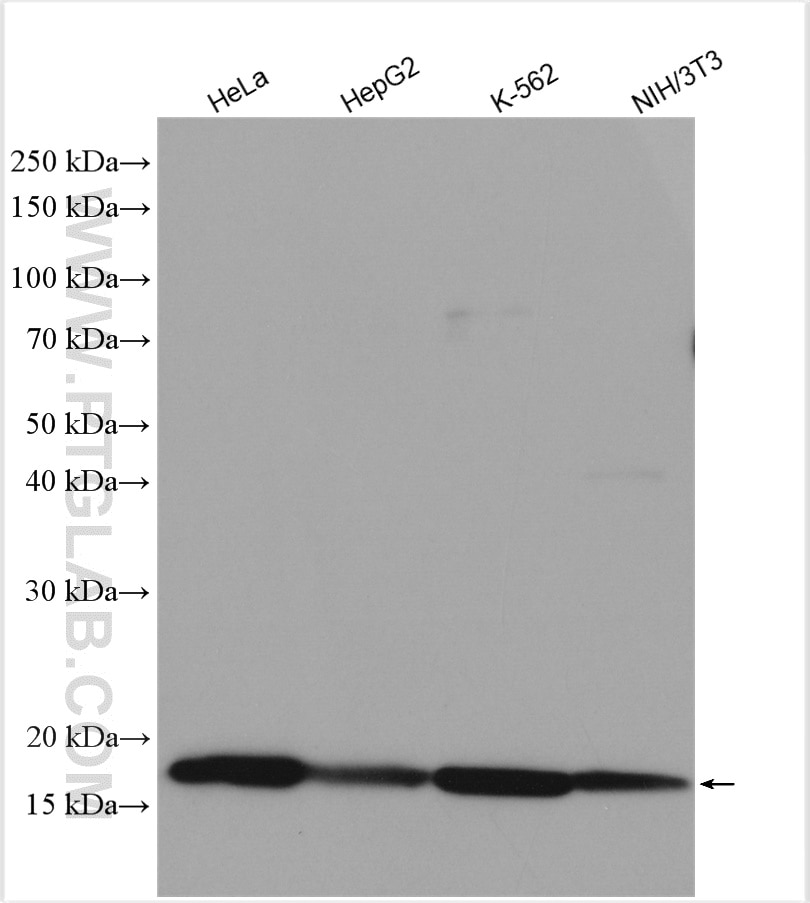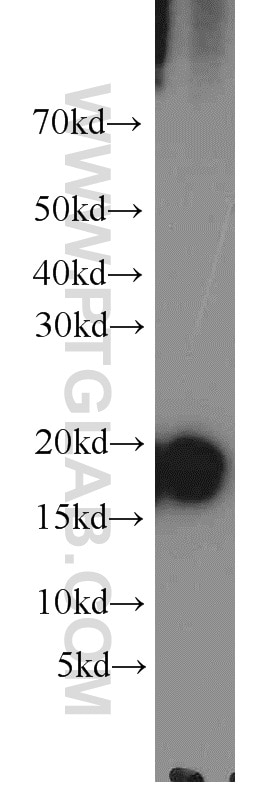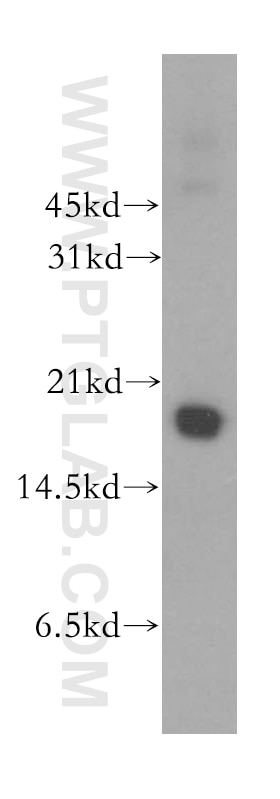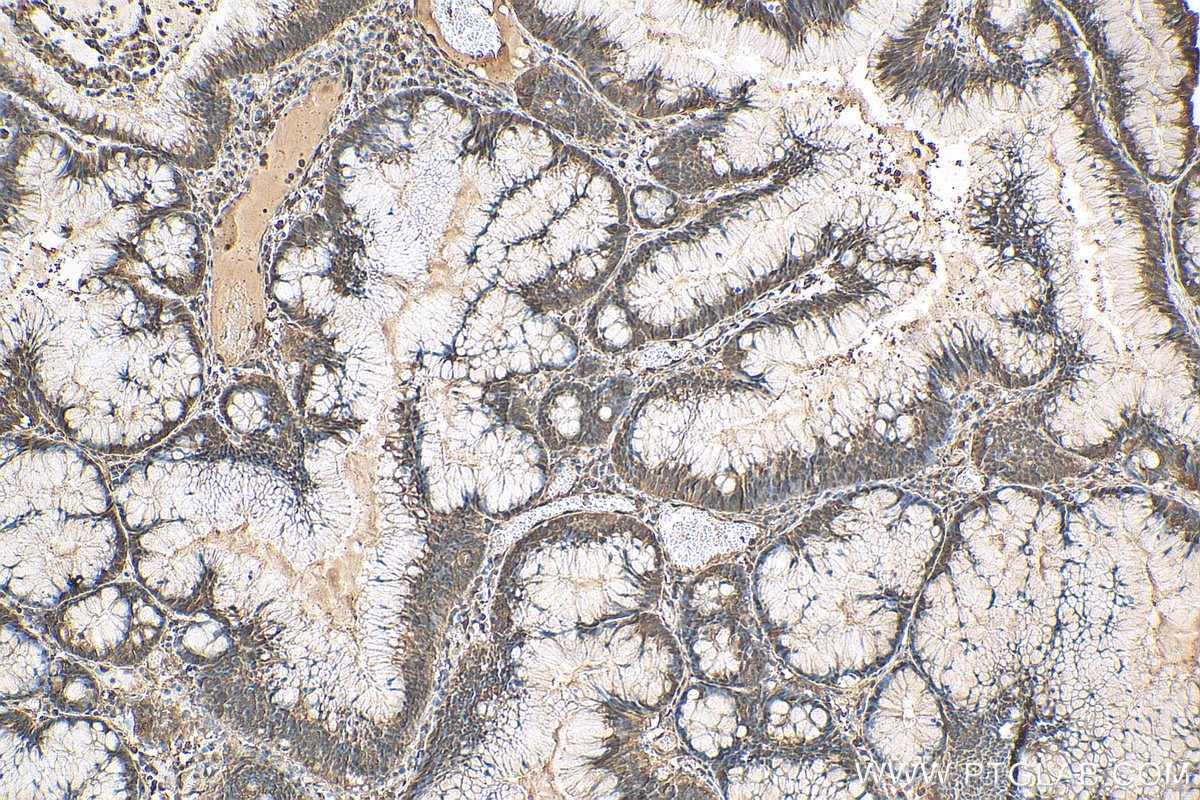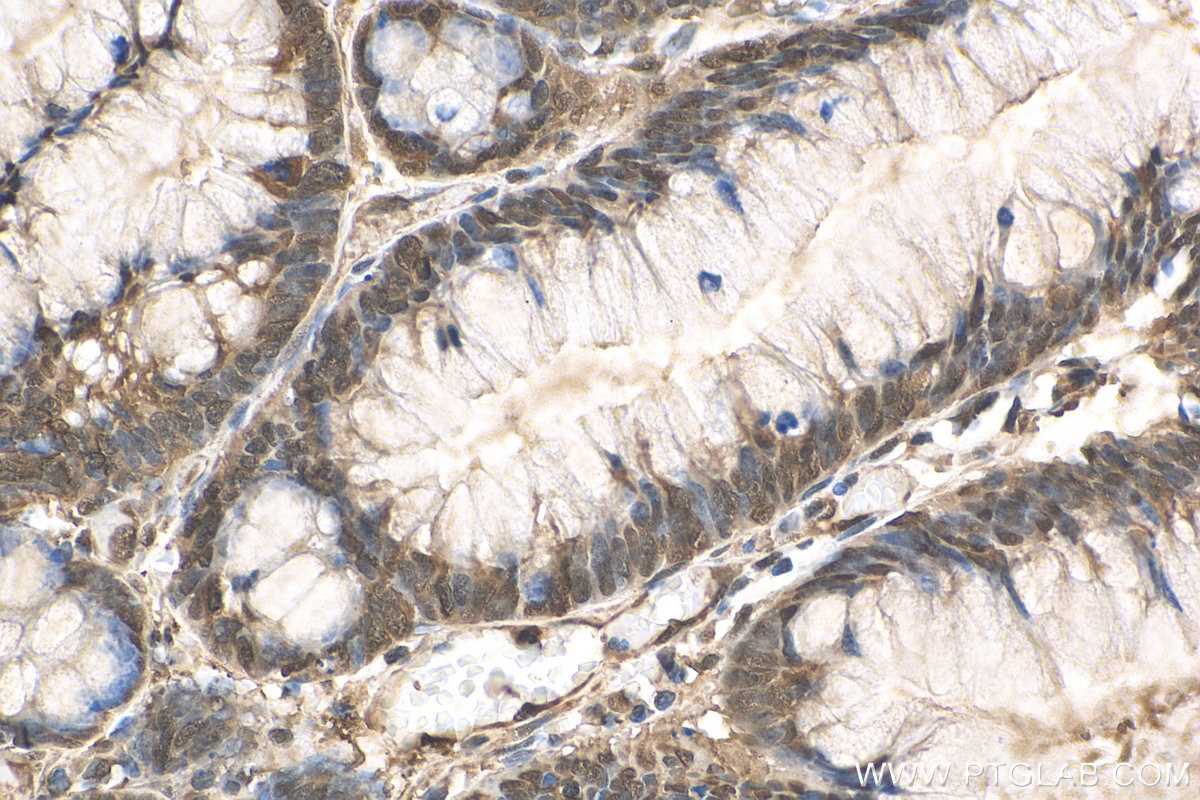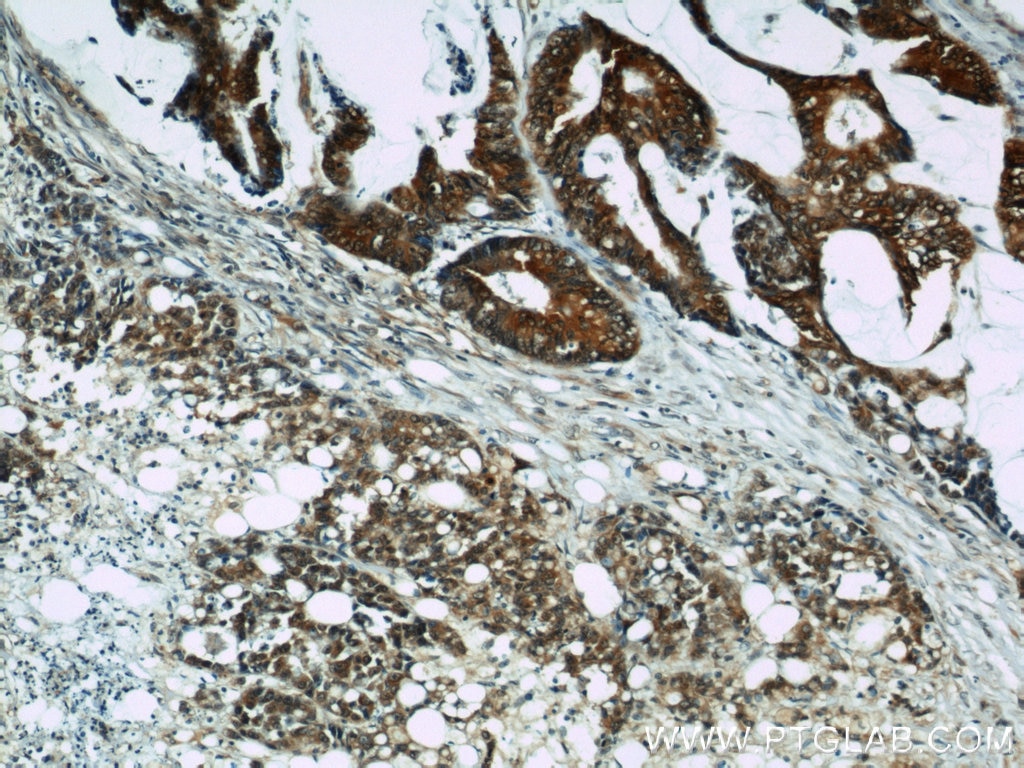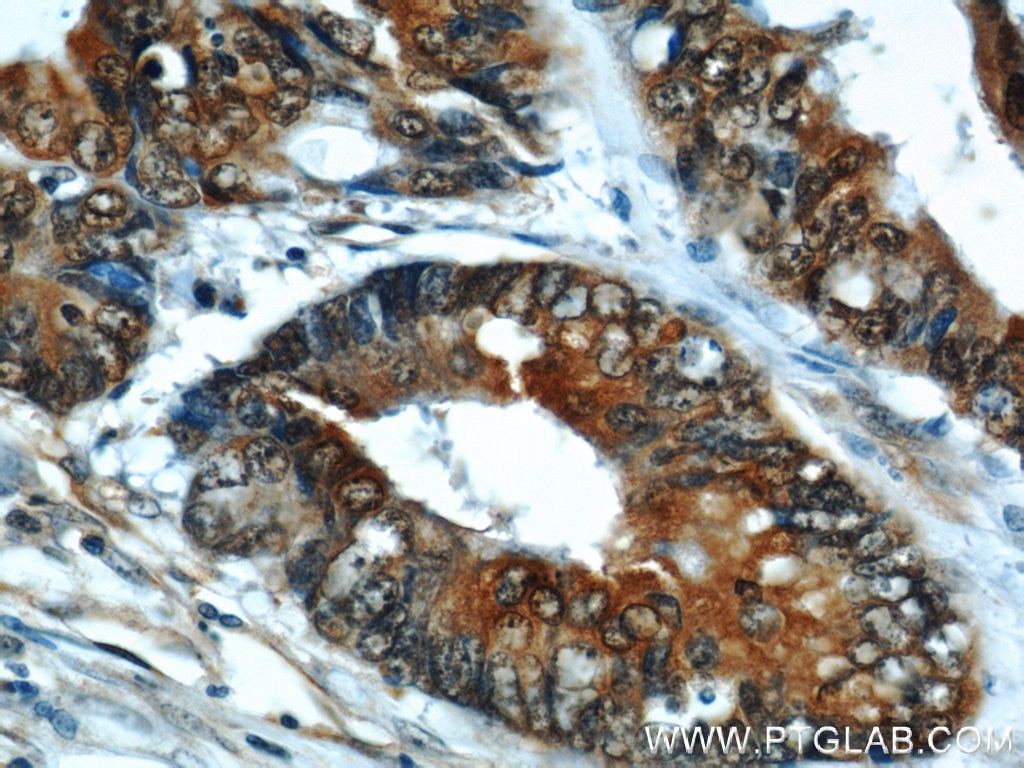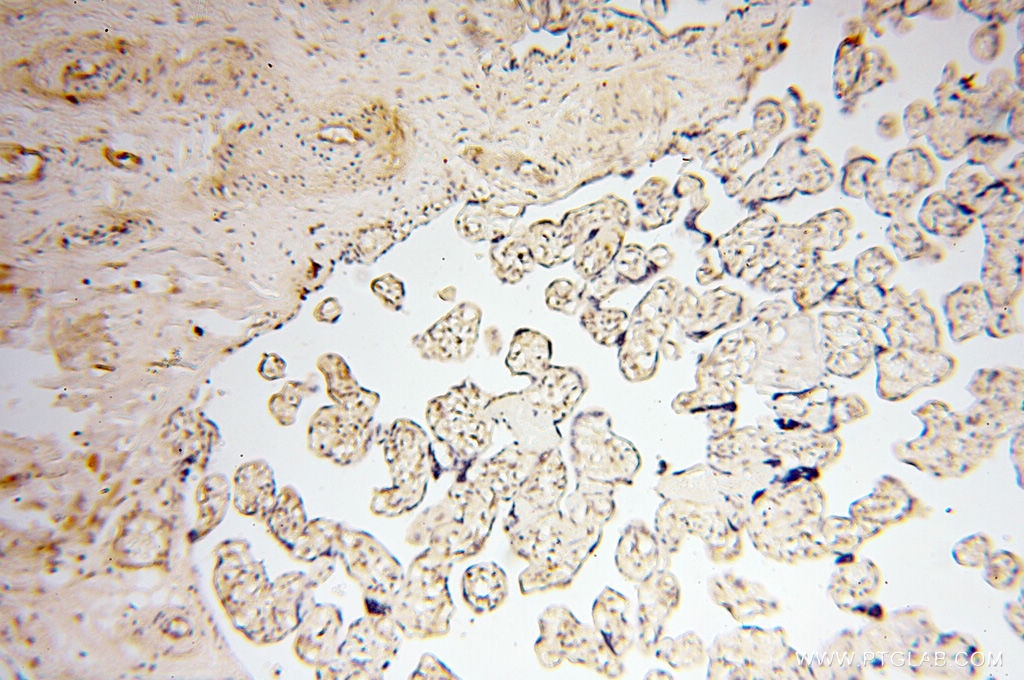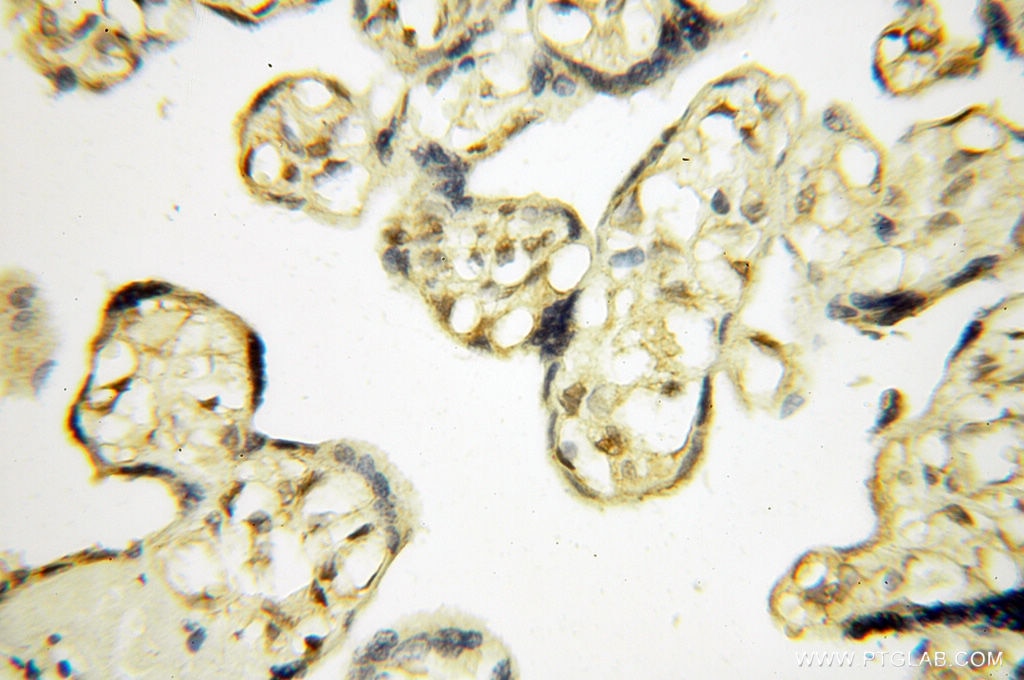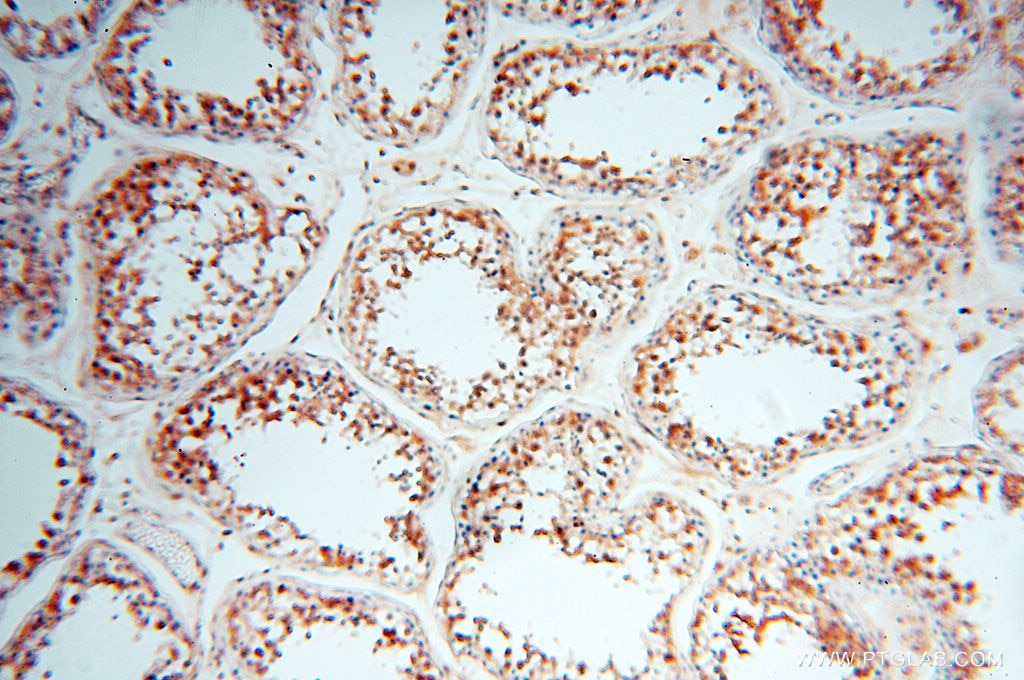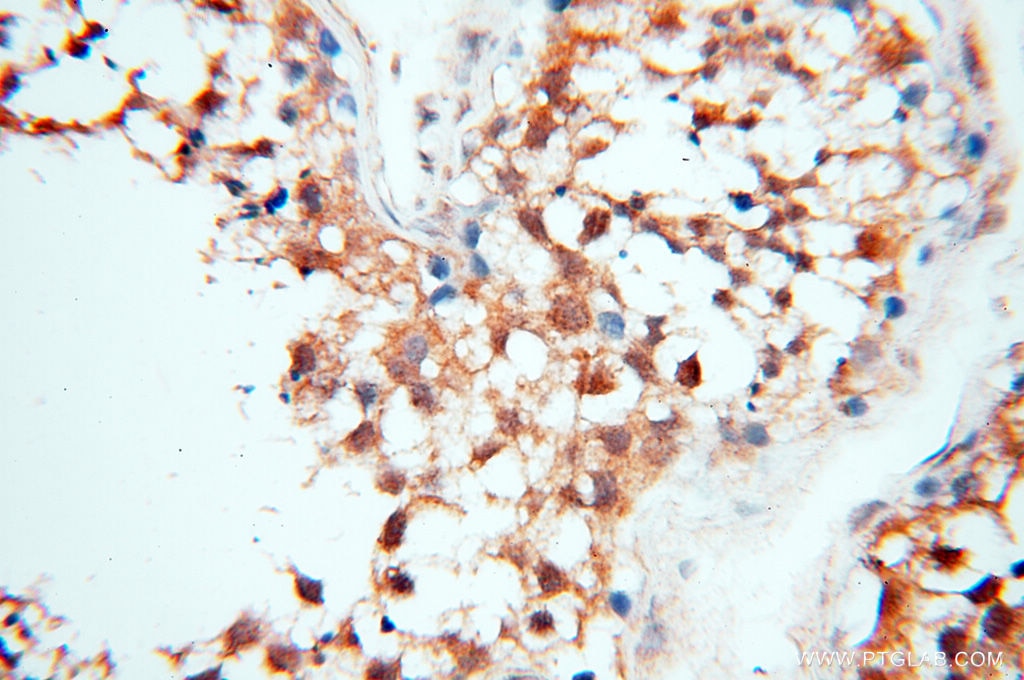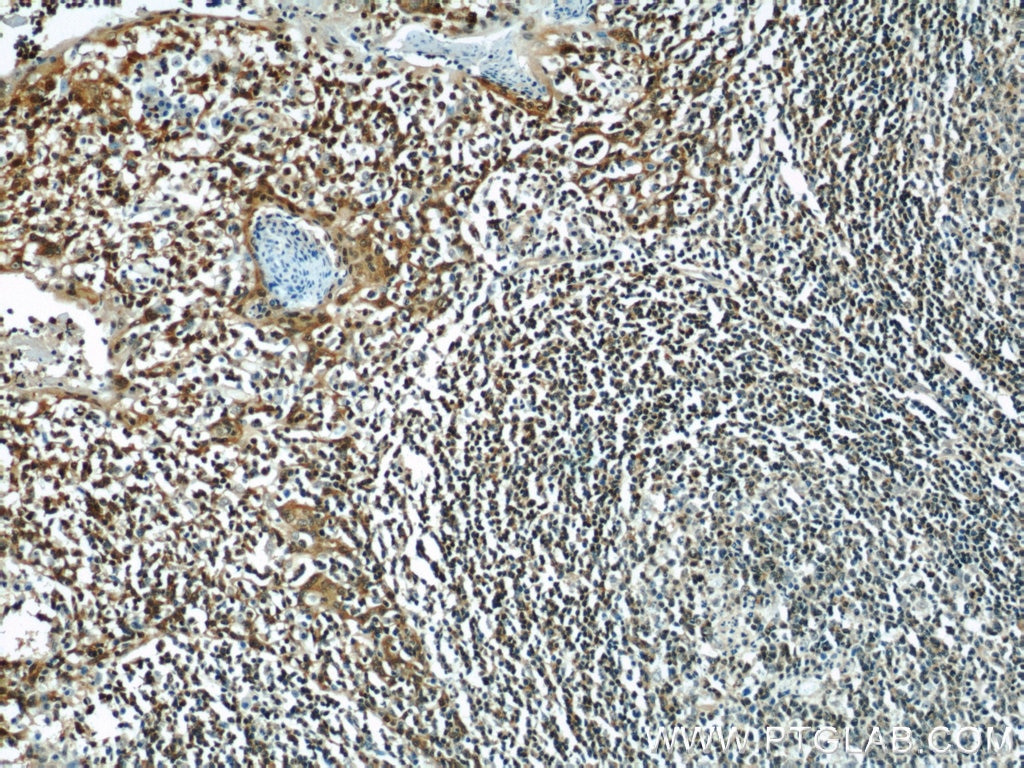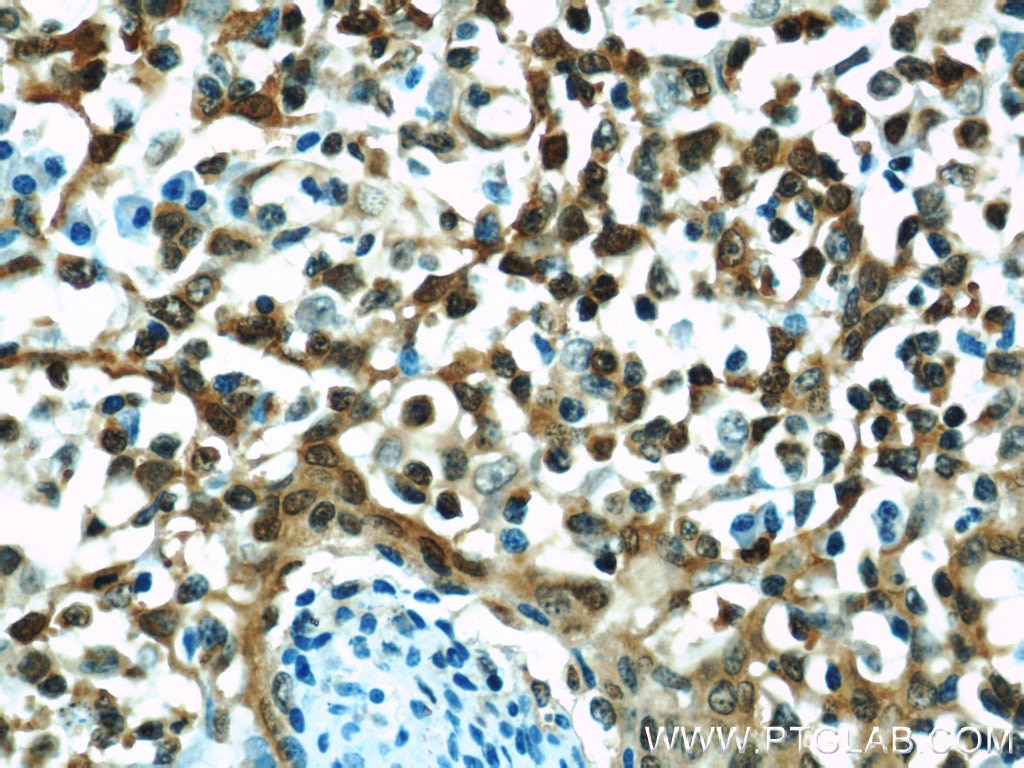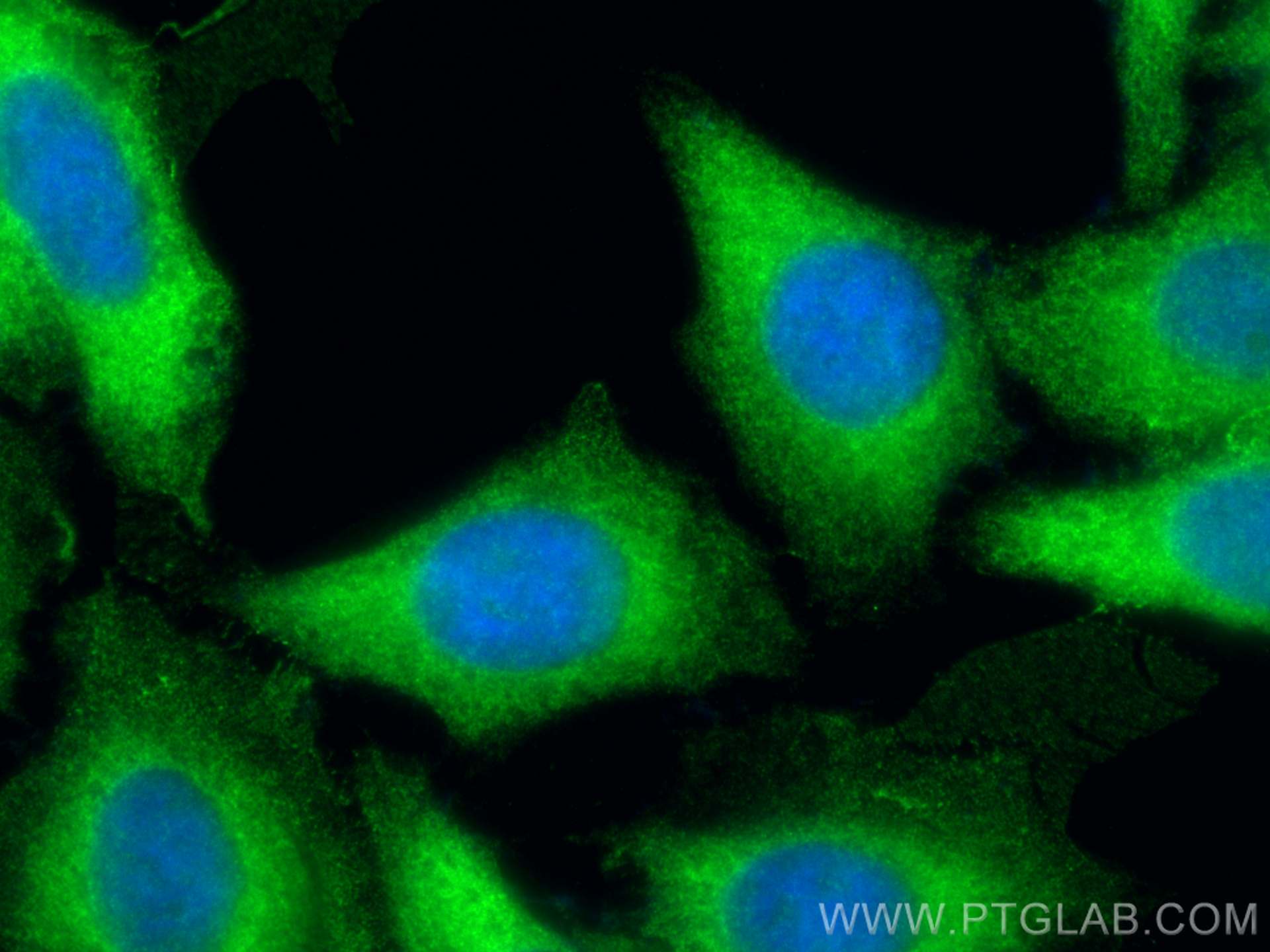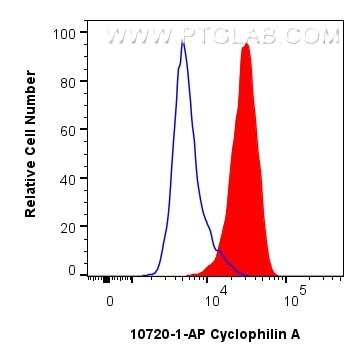Tested Applications
| Positive WB detected in | HeLa cells, C6 cells, Raji cells, HepG2 cells, K-562 cells, NIH/3T3 cells |
| Positive IHC detected in | human colon cancer tissue, human placenta tissue, human tonsillitis tissue, human testis tissue Note: suggested antigen retrieval with TE buffer pH 9.0; (*) Alternatively, antigen retrieval may be performed with citrate buffer pH 6.0 |
| Positive IF/ICC detected in | HepG2 cells |
| Positive FC (Intra) detected in | HeLa cells |
Recommended dilution
| Application | Dilution |
|---|---|
| Western Blot (WB) | WB : 1:2000-1:10000 |
| Immunohistochemistry (IHC) | IHC : 1:50-1:500 |
| Immunofluorescence (IF)/ICC | IF/ICC : 1:50-1:500 |
| Flow Cytometry (FC) (INTRA) | FC (INTRA) : 0.25 ug per 10^6 cells in a 100 µl suspension |
| It is recommended that this reagent should be titrated in each testing system to obtain optimal results. | |
| Sample-dependent, Check data in validation data gallery. | |
Published Applications
| KD/KO | See 4 publications below |
| WB | See 22 publications below |
| IHC | See 10 publications below |
| IF | See 6 publications below |
Product Information
10720-1-AP targets Cyclophilin A in WB, IHC, IF/ICC, FC (Intra), ELISA applications and shows reactivity with human, mouse, rat samples.
| Tested Reactivity | human, mouse, rat |
| Cited Reactivity | human, mouse, rat, monkey |
| Host / Isotype | Rabbit / IgG |
| Class | Polyclonal |
| Type | Antibody |
| Immunogen | Cyclophilin A fusion protein Ag1120 Predict reactive species |
| Full Name | peptidylprolyl isomerase A (cyclophilin A) |
| Calculated Molecular Weight | 18 kDa |
| Observed Molecular Weight | 18 kDa |
| GenBank Accession Number | BC005320 |
| Gene Symbol | PPIA |
| Gene ID (NCBI) | 5478 |
| RRID | AB_2237516 |
| Conjugate | Unconjugated |
| Form | Liquid |
| Purification Method | Antigen affinity purification |
| UNIPROT ID | P62937 |
| Storage Buffer | PBS with 0.02% sodium azide and 50% glycerol , pH 7.3 |
| Storage Conditions | Store at -20°C. Stable for one year after shipment. Aliquoting is unnecessary for -20oC storage. 20ul sizes contain 0.1% BSA. |
Background Information
Cyclophilin A, also named as PPIA and Rotamase A, belongs to the cyclophilin-type PPIase family and PPIase A subfamily. PPIases accelerate the folding of proteins. It catalyzes the cis-trans isomerization of proline imidic peptide bonds in oligopeptides. PPIA forms a trimolecular complex with cyclophilin and calcineurins to inhibit calcineurin phosphatase activity. PPIA is incorporated into the virion of the type 1 human immunodeficiency virus (HIV-1) via a direct interaction with the capsid domain of the viral Gag polyprotein and is crucial for efficient viral replication.
Protocols
| Product Specific Protocols | |
|---|---|
| WB protocol for Cyclophilin A antibody 10720-1-AP | Download protocol |
| IHC protocol for Cyclophilin A antibody 10720-1-AP | Download protocol |
| IF protocol for Cyclophilin A antibody 10720-1-AP | Download protocol |
| Standard Protocols | |
|---|---|
| Click here to view our Standard Protocols |
Publications
| Species | Application | Title |
|---|---|---|
Cell Res Comparison of viral RNA-host protein interactomes across pathogenic RNA viruses informs rapid antiviral drug discovery for SARS-CoV-2. | ||
Sci Adv CGG repeat RNA G-quadruplexes interact with FMRpolyG to cause neuronal dysfunction in fragile X-related tremor/ataxia syndrome. | ||
Brain Defective cyclophilin A induces TDP-43 proteinopathy: implications for amyotrophic lateral sclerosis and frontotemporal dementia
| ||
Mol Neurodegener Decoding distinctive features of plasma extracellular vesicles in amyotrophic lateral sclerosis. | ||
Inflamm Regen Testosterone upregulates glial cell line-derived neurotrophic factor (GDNF) and promotes neuroinflammation to enhance glioma cell survival and proliferation | ||
Virol Sin Cyclophilin A binds to AKT1 and facilitates the tumorigenicity of Epstein-Barr virus by mediating the activation of AKT/mTOR/NF-κB positive feedback loop
|
